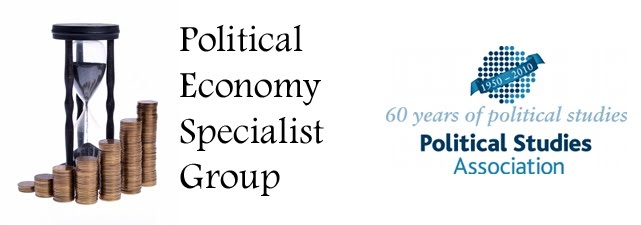7th Pan-European International Relations Conference, Stockholm, 9-11 September 2010
The conference will feature keynote speeches by Peter Gourevitch, Professor of Political Science, University of California at San Diego, and Ambassador Jan Eliasson, Senior Visiting Scholar at the United States Institute of Peace (USIP) and former United Nations Special Envoy for Darfur.
The conference consists of sections on the following topics:
* New Approaches to Cold War: History and Current International Politics
* The European Union's Relations with Major International Powers
* The Politics of World Community: Beyond the International in Theory and Practice
* Credit and Crisis
* Spaces of Global Capital: Territoriality, Markets and Democratic Politics
* English school
* International Security
* Security and Ethics
* The Critical Limits to the Financial Crisis: World Politics, Aesthetics, and Re-Politicization
* Energy Resources and Social Change
* The Return of the State? Global Capitalism and Geopolitics after the Crisis of Neoliberalism
* The Future of Armed Conflict
* Challenges of Democracy Promotion: Do all good things go together?
* Searching for State Identity in Post-crisis period: theories and policies
* European Sea Power - A Critical Appraisal
* Critical Approaches to Security in Europe
* Changing Tide in Global Economic Regulation? The Crisis and Global Economic Governance
* The Bright and Dark Sides of the Discipline
* New Approaches to Foreign Policy Analysis: Integrating rational, social and psychological perspectives
* Gender in Transnational Politics: Transitions and Transformations in a Time of Crises
* Identity and Conflict
* Social Democratic Responses to the Contemporary Humanitarian Military Intervention Dilemma: A Comparative Analysis.
* Biopolitics, Governmentality, Circulation
* Another Europe is possible? Alternatives and Resistance to Neoliberal European Governance
* European Foreign Policy in Transition: New IR Approaches to EU Foreign Policy
* Putting critical IPE in its place?
* Emergence of Humanitarian World Politics
* Global Order: Historical Perspective or Fiction?
* Strategic Narratives
* Politics in Hard Times: The Human Impact of the Financial Crisis
* The European Sub-prime: The Financial Crisis in Eastern Europe
* International Institutions, Global Politics, and Law
* The Debate on Turkey - Creating an inclusive or exclusive Europe?
* Democratic Governance and International Institutions
* The "Other" Crisis: The Political Economy of the Environment and Our Relationship To It
* The Transformation of Security Culture
* Crisis - Whose Crisis? Southern Actors between Contagion, Concurrence and Cooperation
* Re-Discovering International Organisations
* Constructing the Knowledge Society: A Global Challenge
* Nordic Scholars/ Nordic Countries in International Relations
* Regional Powers in Latin America, Africa and Asia: Winners or Losers of the Financial Crisis?
* Economic Communities and Institution-Building in Times of Crisis
* Global Citizenship and Cosmopolitanism
Each section will comprise either 5 or 10 panels. For more information on these sections and their convenors see
http://www.sgir.eu/conference. Please get in touch with the section convenors on any question regarding their section. There will be no Open Section - all paper and panel proposals have to fit into the sections outlined above.
The conference will take place at the congenial and atmospheric Stockholm City Conference Centre, a prime downtown venue. A reception for all participants will be given at Stockholm City Hall, the same hall in which the annual Nobel Prize banquet is held. The conference is organised by the Swedish Institute of International Affairs, Södertörn University, Stockholm University and the Swedish National Defence College, in cooperation with the Standing Group on International Relations (SGIR) of the European Consortium for Political Research (ECPR). The local organizing committee is chaired by Johan Eriksson (Södertörn University and Swedish Institute of International Affairs).
All sections welcome individual paper proposals, most welcome complete panel proposals as well. Each 105-minute panel should comprise four to five papers plus discussant and chair. Proposals must be submitted via our online submission system at
http://www.sgir.eu/conference.
ECPR-SGIR does not request membership for conference participation. It offers reduced rates of conference fees for students. Prospective participants should note that the ECPR-SGIR is unable to reimburse expenses incurred in connection with the conference.
The closing date for paper and panel proposals is February 28, 2010.
Accepted participants will be notified by April 1, 2010.
Andreas Nölke and Antje Wiener
ECPR-SGIR 2010 Programme Chairs
